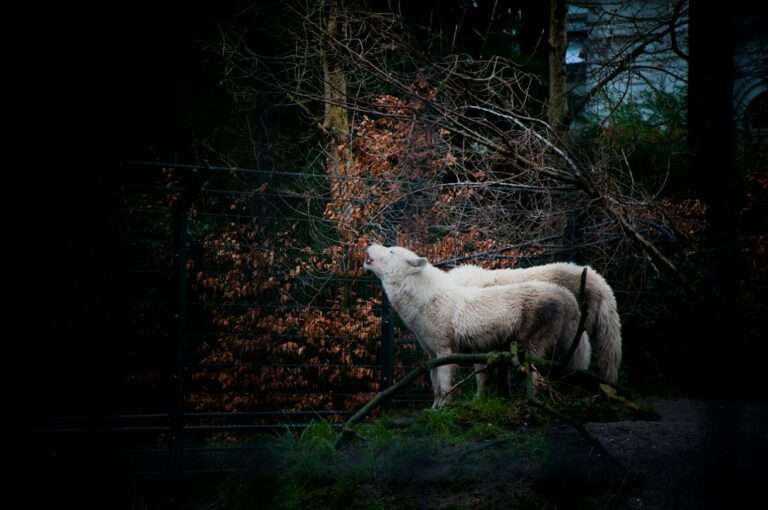Unpacking the Mystical Meanings of Swan Symbolism: A Deep Dive into the Grace, Beauty, and Transformation Linked to this Majestic Bird

The swan is a bird that has captivated the human imagination for centuries. With its graceful movements, elegant appearance, and majestic presence, it is no wonder that the swan holds a special place in the hearts and minds of people around the world. From ancient folklore and mythology to modern-day symbolism, the swan has been revered and celebrated for its beauty, grace, and symbolism.
In this blog post, we will explore the rich cultural significance of the swan and delve into the various ways in which it has been symbolically significant across different cultures and throughout history. We will examine its mythical origins, its representation of grace and elegance, its symbolism of transformation and personal growth, its connotations of love and partnership, its spiritual significance, its associations with loyalty and devotion, its regal associations, and its therapeutic properties. By unpacking the many layers of swan symbolism, we can gain a deeper appreciation for the beauty and complexity of this magnificent creature.
Key Takeaways
- The swan is revered across cultures for its beauty, grace, and symbolism.
- Ancient folklore and legend attribute mythical origins to swan symbolism.
- The swan’s elegance and beauty make it a powerful symbol of grace.
- The swan’s transformation from an awkward cygnet to a majestic bird represents personal growth and change.
- The swan’s romantic connotations make it a symbol of love and partnership.
The Mythical Origins of Swan Symbolism: A Look at Ancient Folklore and Legend.
Swan mythology can be found in various cultures around the world. In Greek mythology, the swan was associated with the god Apollo and was believed to be a symbol of beauty, grace, and music. According to legend, Apollo transformed himself into a swan to seduce the beautiful mortal woman named Callisto. In Celtic mythology, the swan was associated with the goddess Brigid and was believed to be a symbol of purity, healing, and transformation. In Hindu mythology, the swan was associated with the god Brahma and was believed to be a symbol of knowledge, wisdom, and transcendence.
Despite these cultural differences, there are common themes and motifs that can be found in swan folklore across different cultures. The swan is often associated with water, which symbolizes the subconscious mind and the realm of emotions. It is also associated with the concept of duality, as it is both a bird of the air and a creature of the water. This duality represents the balance between the conscious and unconscious aspects of the self. Additionally, the swan is often depicted as a messenger between the mortal world and the divine realm, symbolizing its connection to higher spiritual realms.
Swan as a Symbol of Grace and Elegance: What Makes this Bird So Beautiful?
The swan is renowned for its physical beauty and graceful movements. With its long neck, slender body, and pure white feathers, it exudes an air of elegance and sophistication. Its movements on land and in water are smooth and effortless, further enhancing its reputation as a symbol of grace.
The swan’s physical characteristics and behavior have contributed to its symbolic meaning. Its long neck represents flexibility and adaptability, while its white feathers symbolize purity and innocence. The swan’s ability to glide effortlessly across water reflects its ability to navigate through life’s challenges with ease and grace. Its serene presence and calm demeanor inspire feelings of tranquility and peace.
Swan as a Symbol of Transformation: How this Bird Represents Personal Growth and Change.
| Swan as a Symbol of Transformation | Personal Growth and Change |
|---|---|
| Graceful and Elegant | Represents the beauty and elegance of personal growth and change |
| Ugly Duckling Story | Symbolizes the transformation from an awkward and unattractive state to a beautiful and confident one |
| Migration | Represents the journey of personal growth and change, as the swan migrates to new environments and experiences |
| Regeneration | Symbolizes the ability to renew and regenerate oneself, just as the swan sheds its feathers and grows new ones |
| Mythology | Has been a symbol of transformation and change in various mythologies and cultures throughout history |
The swan undergoes a remarkable transformation throughout its life cycle, which has made it a powerful symbol of personal growth and change. From its humble beginnings as a cygnet, or baby swan, it grows into a majestic adult bird with beautiful plumage.
This transformation has been used as a metaphor for personal growth and change in various cultures. Just as the swan undergoes a physical transformation, so too can individuals undergo a transformation in their own lives. The swan’s journey from cygnet to adult represents the journey from innocence to maturity, from vulnerability to strength.
Swan as a Symbol of Love and Partnership: The Romantic Connotations of this Majestic Bird.
The swan is often associated with love and partnership, thanks to its mating habits and behavior. Swans are known for their lifelong monogamous relationships, with pairs often staying together until one of them dies. This loyalty and devotion have made the swan a symbol of true love and lasting partnerships.
The swan’s courtship rituals are also a sight to behold. During mating season, swans engage in elaborate displays of affection, including synchronized swimming and neck-twisting dances. These displays symbolize the deep bond between mates and the importance of communication and connection in relationships.
Swan as a Symbol of Spirituality: The Mystical and Metaphysical Significance of this Creature.

The swan has long been associated with spirituality in various cultures and belief systems. In Hinduism, the swan is believed to be the vehicle of the god Brahma, representing knowledge, wisdom, and transcendence. In Buddhism, the swan is a symbol of purity and enlightenment, as it is believed to possess the ability to separate milk from water, symbolizing the ability to discern truth from illusion.
The swan’s symbolism in spirituality relates to concepts such as purity, enlightenment, and transcendence. Its association with water represents the subconscious mind and the realm of emotions, while its ability to fly represents the ability to rise above earthly concerns and connect with higher spiritual realms.
Swan as a Symbol of Loyalty and Devotion: The Symbolic Meanings of Swan Mating Habits.
As mentioned earlier, swans are known for their lifelong monogamous relationships. This loyalty and devotion have made them a symbol of fidelity and commitment in various cultures.
Swans mate for life, with pairs often staying together until one of them dies. They build their nests together, raise their young together, and protect each other fiercely. This unwavering loyalty has made the swan a symbol of true love and lasting partnerships.
Swan as a Symbol of Power and Authority: The Royal and Regal Associations of this Bird.
The swan has long been associated with power and authority, thanks to its regal appearance and graceful presence. In ancient times, swans were often associated with royalty and were considered a symbol of power and majesty.
In art, literature, and other forms of cultural expression, the swan has been used to represent royalty and nobility. It is often depicted as a companion to gods and goddesses, symbolizing their divine status. Its regal associations have also been used to convey a sense of elegance, sophistication, and refinement.
Swan as a Symbol of Healing and Renewal: The Therapeutic Properties of this Majestic Creature.
The swan has therapeutic properties in various cultures and belief systems. In Celtic mythology, the swan was associated with the goddess Brigid and was believed to possess healing powers. It was believed that the touch of a swan’s feather could bring about physical and emotional healing.
The swan’s symbolism in healing relates to concepts such as renewal, rejuvenation, and transformation. Its association with water represents the cleansing and purifying properties of this element, while its graceful movements inspire feelings of tranquility and peace.
Unpacking the Many Layers of Swan Symbolism and Appreciating the Beauty and Complexity of this Bird.
In conclusion, the swan is a bird that holds great cultural significance across different cultures and throughout history. Its mythical origins, representation of grace and elegance, symbolism of transformation and personal growth, connotations of love and partnership, spiritual significance, associations with loyalty and devotion, regal associations, and therapeutic properties all contribute to its enduring symbolism.
By unpacking the many layers of swan symbolism, we can gain a deeper appreciation for the beauty and complexity of this majestic creature. Whether it is revered for its physical beauty, admired for its graceful movements, or celebrated for its symbolic meaning, the swan continues to captivate the human imagination and inspire awe and wonder.
If you’re interested in exploring the symbolism of the swan, you might also find the article on cryotherapy in London intriguing. Cryotherapy is a treatment that involves exposing the body to extremely cold temperatures for therapeutic purposes. Just like the swan, cryotherapy is associated with rejuvenation and transformation. To learn more about this fascinating therapy and its symbolic connections, check out the article on cryotherapy in London.
FAQs
What is Swan Symbolism?
Swan Symbolism is the use of swans as a symbol in various cultures and traditions to represent different meanings and concepts.
What do swans symbolize?
Swans symbolize various things in different cultures, including grace, beauty, purity, love, loyalty, transformation, and spiritual awakening.
What cultures use swans as a symbol?
Swans are used as a symbol in various cultures, including Greek, Celtic, Hindu, Chinese, and Native American cultures.
What is the significance of swans in Greek mythology?
In Greek mythology, swans were associated with the god Apollo and were believed to be messengers of the gods. They were also associated with the Muses, who were said to have the ability to transform into swans.
What is the significance of swans in Celtic mythology?
In Celtic mythology, swans were associated with the Otherworld and were believed to be messengers between the mortal world and the spirit world. They were also associated with love and fidelity.
What is the significance of swans in Hindu mythology?
In Hindu mythology, swans were associated with the god Brahma and were believed to have the ability to separate milk from water, symbolizing the ability to discern truth from falsehood.
What is the significance of swans in Chinese mythology?
In Chinese mythology, swans were associated with the goddess Guanyin and were believed to symbolize purity, grace, and beauty.
What is the significance of swans in Native American culture?
In Native American culture, swans were associated with transformation and spiritual awakening. They were also believed to be messengers between the physical and spiritual worlds.





